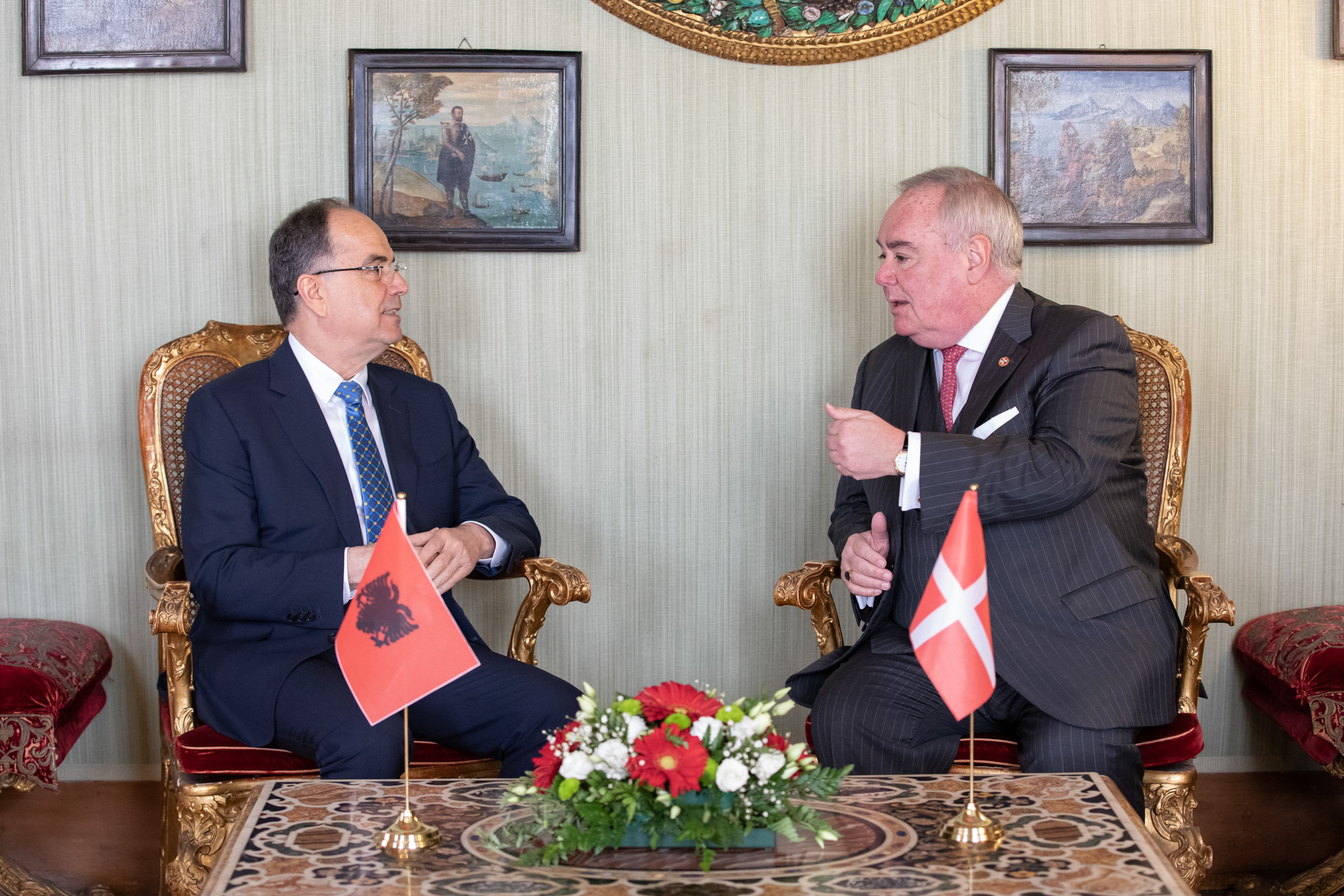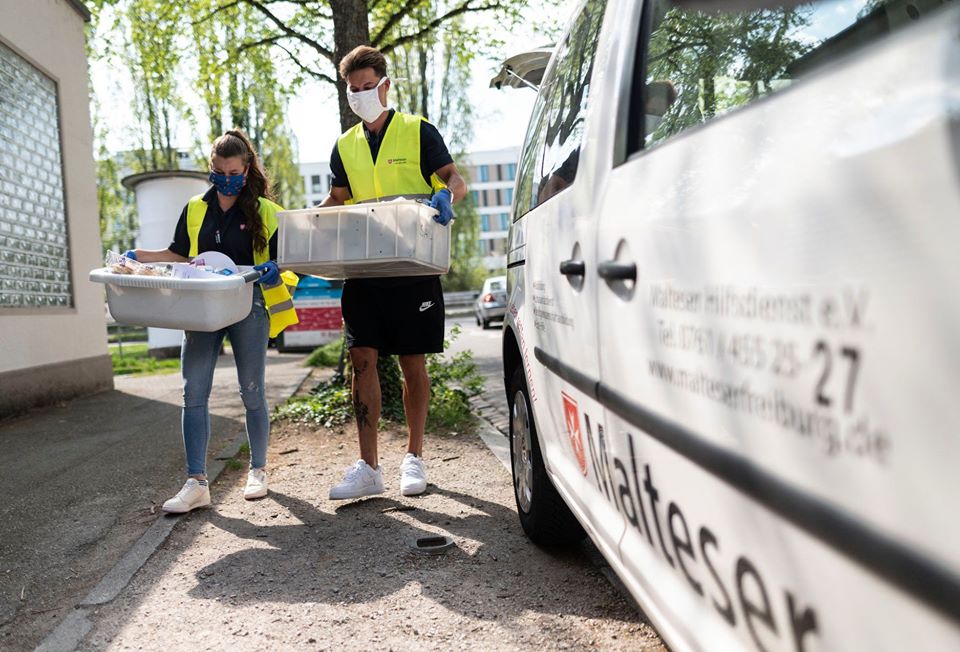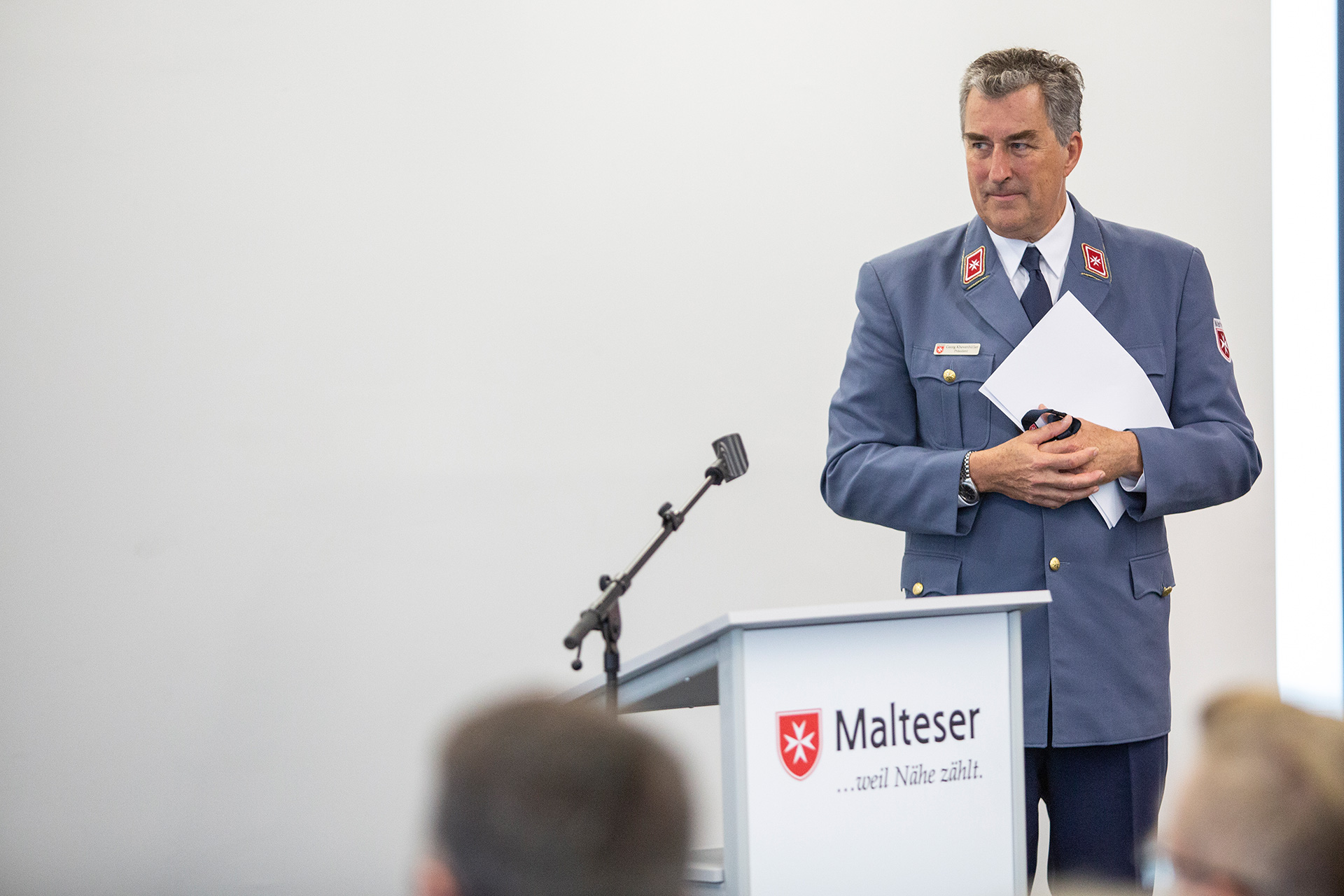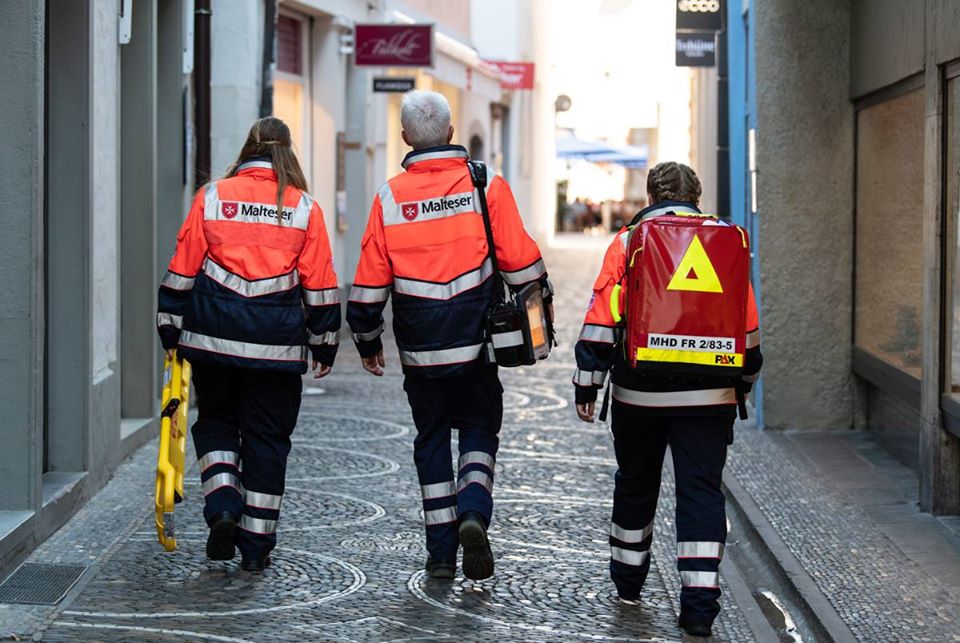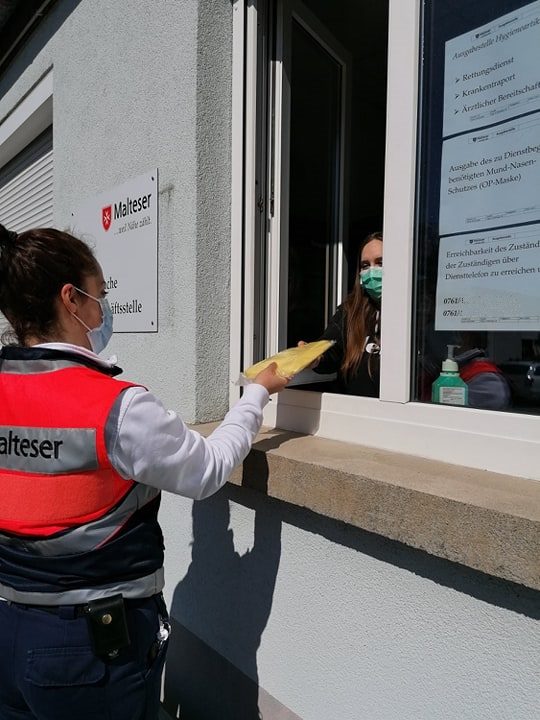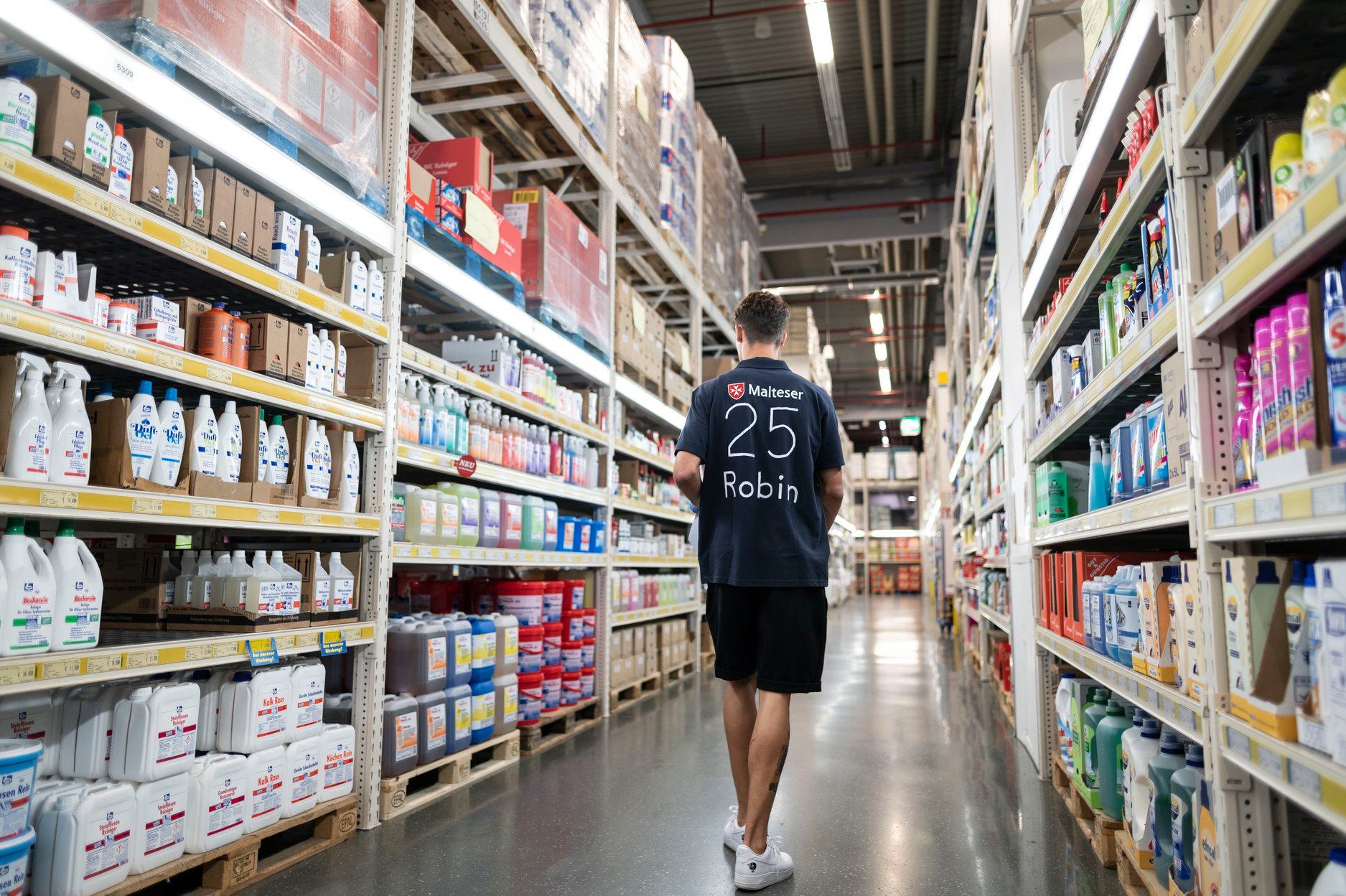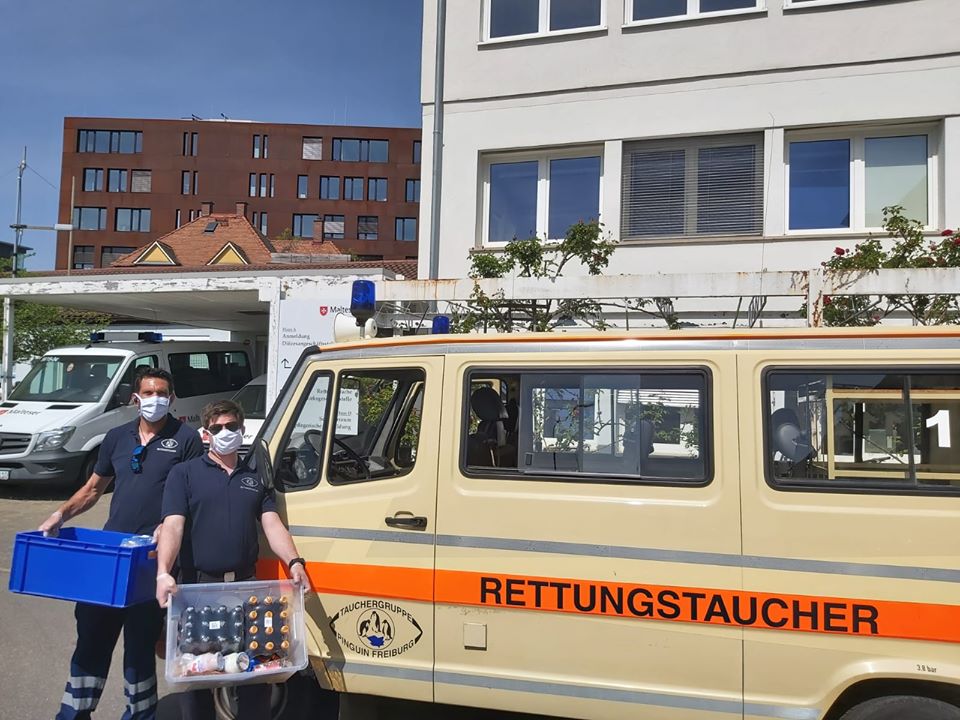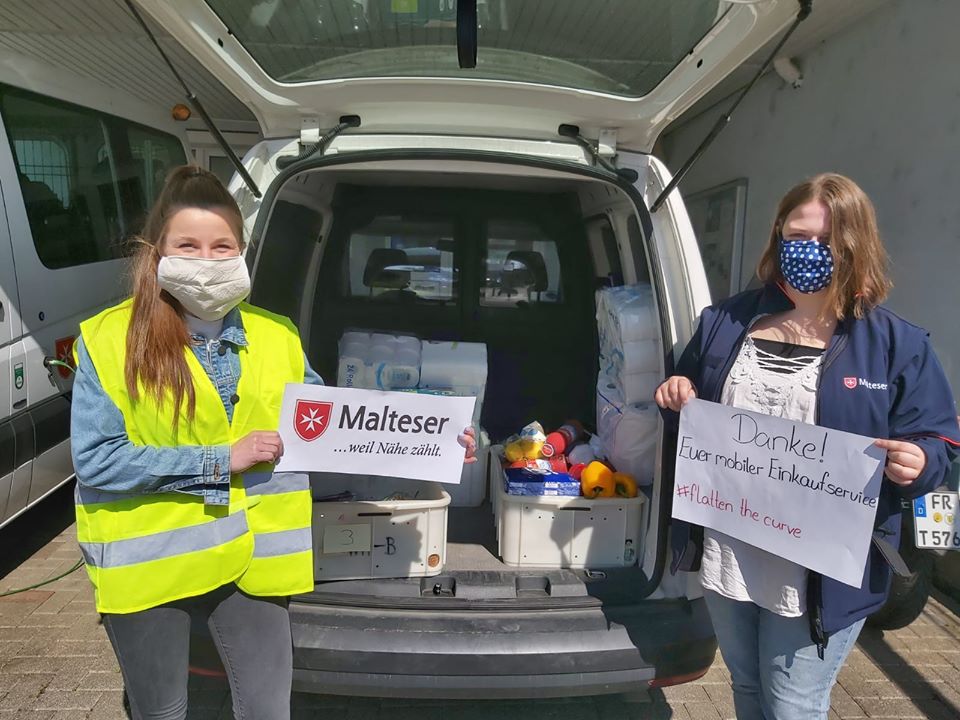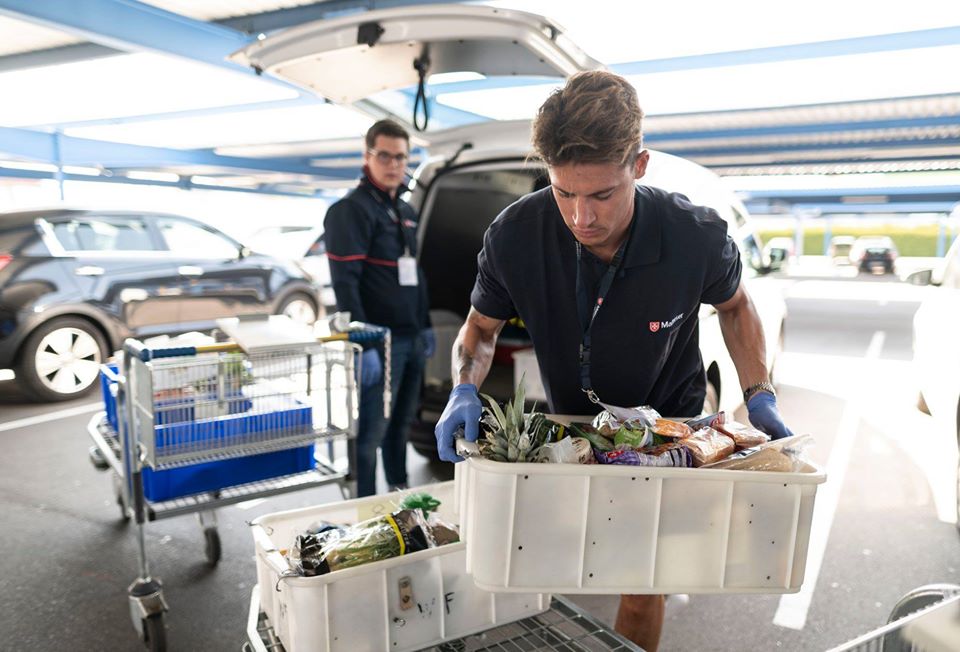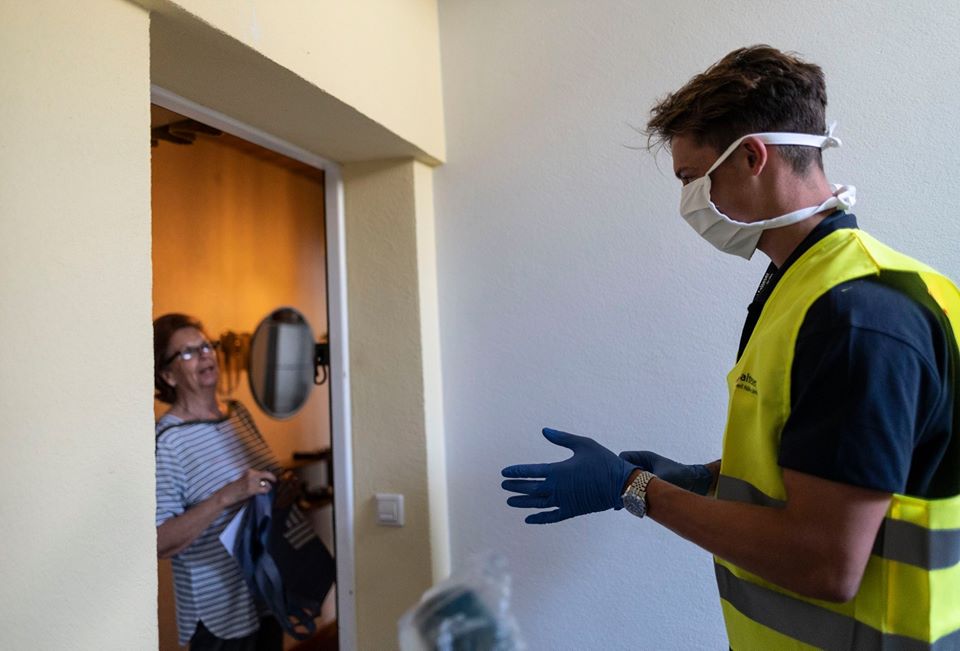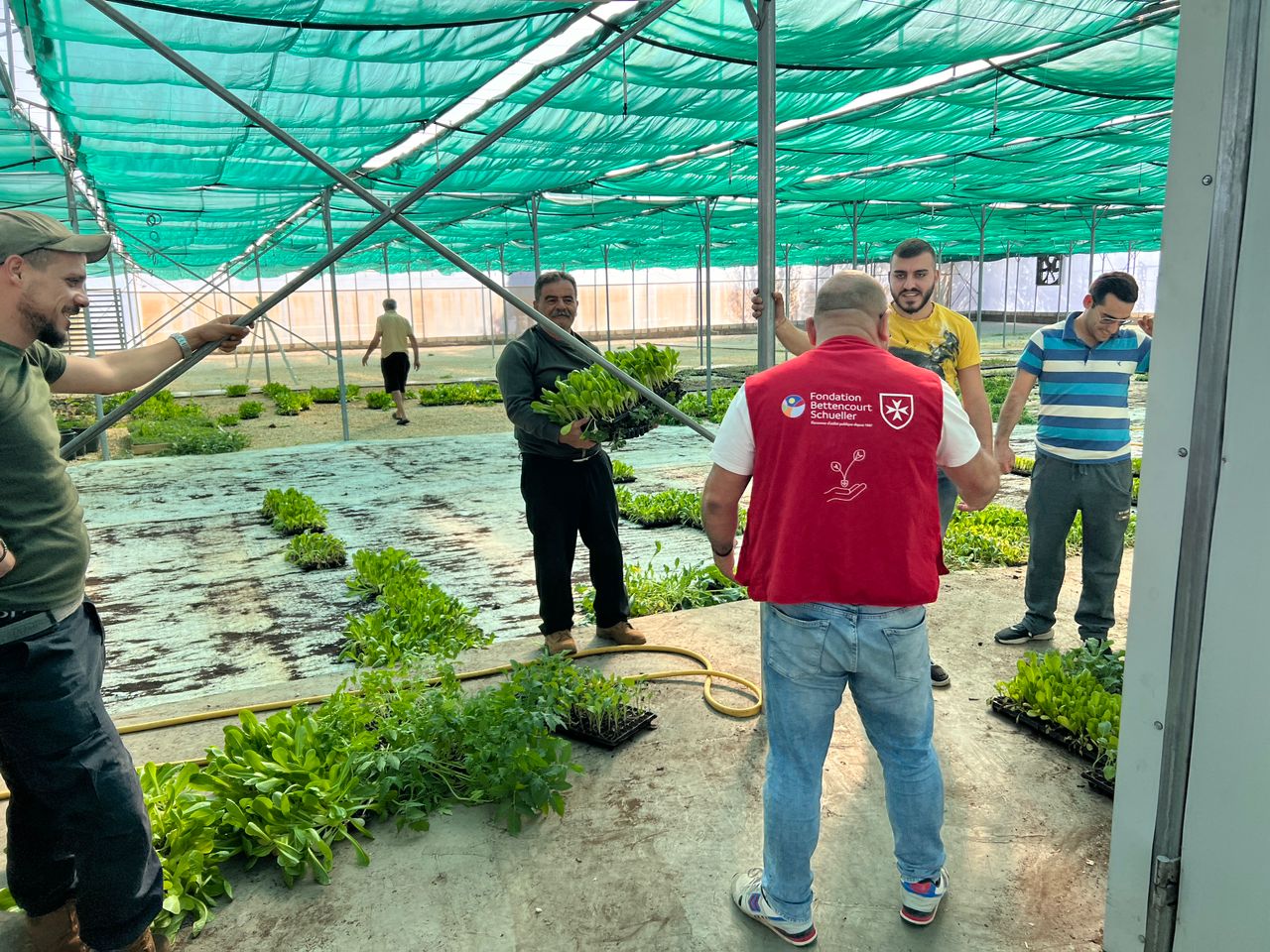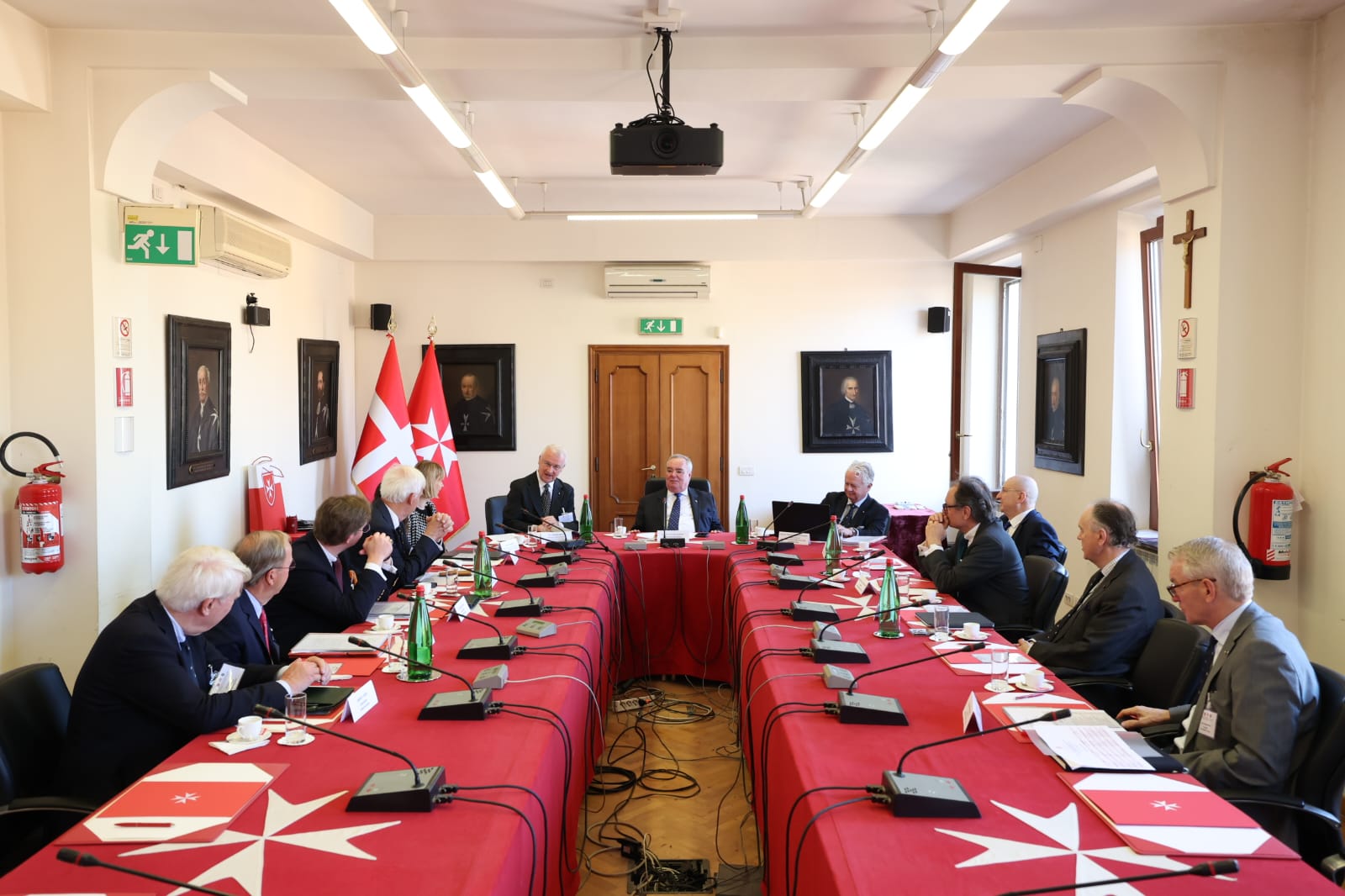“In this time of insecurity and anxiety,” caused by the worldwide COVID-19 pandemic, “nothing is more important than coordinated action and correct communication.” On 23rd April, Georg von Khevenhüller Metsch, president of Malteser Hilfsdienst, illustrated the Order’s activities in Germany during a videoconference with some seventy participants from the Order of Malta’s various structures. It was the fourth virtual “Reports from the Frontline” meeting organised by the Global Fund for Forgotten People since the start of the coronavirus emergency.
Georg von Khevenhüller Metsch described how the pandemic developed in his country and how the thousands of Malteser Hilfsdienst volunteers – some 6000 – were deployed to meet the different needs emerging over these last weeks. “Independently of the ‘dimension’ of the intervention, put in place thanks to the strength, and not only in numbers, of the German Malteser, what made the difference was the ability to act, and not only react, very rapidly. This was also because we were able to see what was happening in other countries.” The president of the Order of Malta’s German relief corps also stressed that “now we have to think of returning to normality and this is a further challenge for our capacities and our flexibility”.
The numbers of the Malteser’s intervention in Germany are very significant, first of all with regards to the work in the eight hospitals the Order of Malta manages, with 92 intensive care beds (and another 41 potential ones), and the 34 care homes for the elderly. There has been a separation between COVID patients, suspected patients and intensive care, there has been staff training for the new anti-contagion measures, visits of family members have been suspended and patients have been provided with tablets to communicate with them. Surgical procedures have been rescheduled and visits of priests have been organised to administer the sacraments, “because many patients are also asking for spiritual support”.
Some 3000 volunteers have been involved in civil defence activities, from the construction of new hospital wings up to the logistics for pre-hospital triage and drive-in testing areas with around fifty stations. Naturally, work in the 50 facilities for refugees and migrants run by the Order continues, encouraging the greatest attention to hygiene and social distancing, “but this has not been easy because these facilities are not hotels and do not possess large spaces, particularly for those who fall ill and have to be put in quarantine”.
The schools the Order of Malta manages in Germany are closed, but they should gradually open in May. Teachers are already being trained to guarantee pupils the best safety conditions. Volunteers are kept busy transporting COVID-10 patients to hospitals. Some 3000 volunteers have stepped up medicine deliveries and meals-on-wheels for the most vulnerable and isolated. With great difficulty they have organised new soup kitchens in cooperation with the local authorities and have set up new activities, such as services for patients’ pets or, very important, the production of surgical masks. Because at this time “we have received an incredible number of people offering to cooperate with us,” human resources not to be dispersed with new ideas and new initiatives.
The on-line and telephone support has proved to be very important, both for practical information requests and for psychological assistance, as much for employees and volunteers as for the community, with specific lines for each category: adolescents, children, parents in difficulty, elderly people living alone. A “virtual mourning room” has been created, an online space dedicated to the memory of those who have died, probably without the possibility of a funeral – a place of silence, of memory, of consolation and of prayer. “This has been an extremely important initiative that has proved to be very necessary.”
A great deal of work has been done, finally, in internal and external communication, with media coverage, often by the local press, as much as triple that of the average. An essential tool was a platform created to allow our people to communicate internally, also able to be supplemented with live events on Facebook (for example questions and answers with doctors, how to organise assistance to sick people at home, first-aid courses online), podcasts, tutorials (how to protect yourself against the virus, or how to make a mask at home).
“But what has this pandemic taught us?” Georg von Khevenhüller Metsch asks, “how can we improve? This is the most important thing to analyse. We have to understand and make it understood that it is essential to prepare ourselves better, to find new solutions,” and it is important “that our work, everywhere in the world, is part of this solution, just like a single big family. In this emergency we have 6000 volunteers working, but at least another 40,000 are unused at home, and they feel frustrated,” the Malteser Hilfsdienst president explained, also saying that, at the start of the Italian crisis, red-tape had made it impossible to send aid from Germany. “We must arouse the awareness of the public at large, but also governments, to strengthen disaster resilience at a federal, regional and local level; to create public consciousness of the Order’s role in serving vulnerable communities and its ability to mobilize voluntary support in emergencies; to rethink our voluntary services in view of future critical and complex scenarios; and finally to redesign, also with virtual methods, spiritual support for members and volunteers as well as those we assist”.





